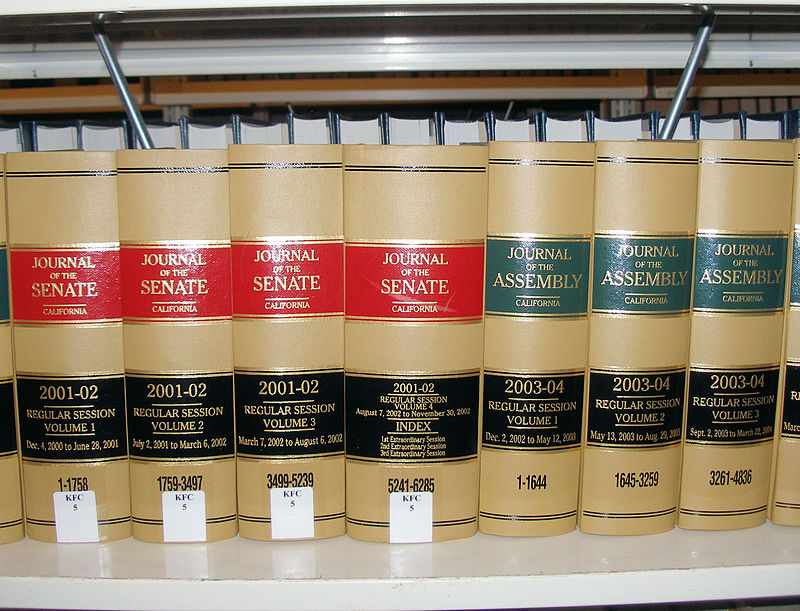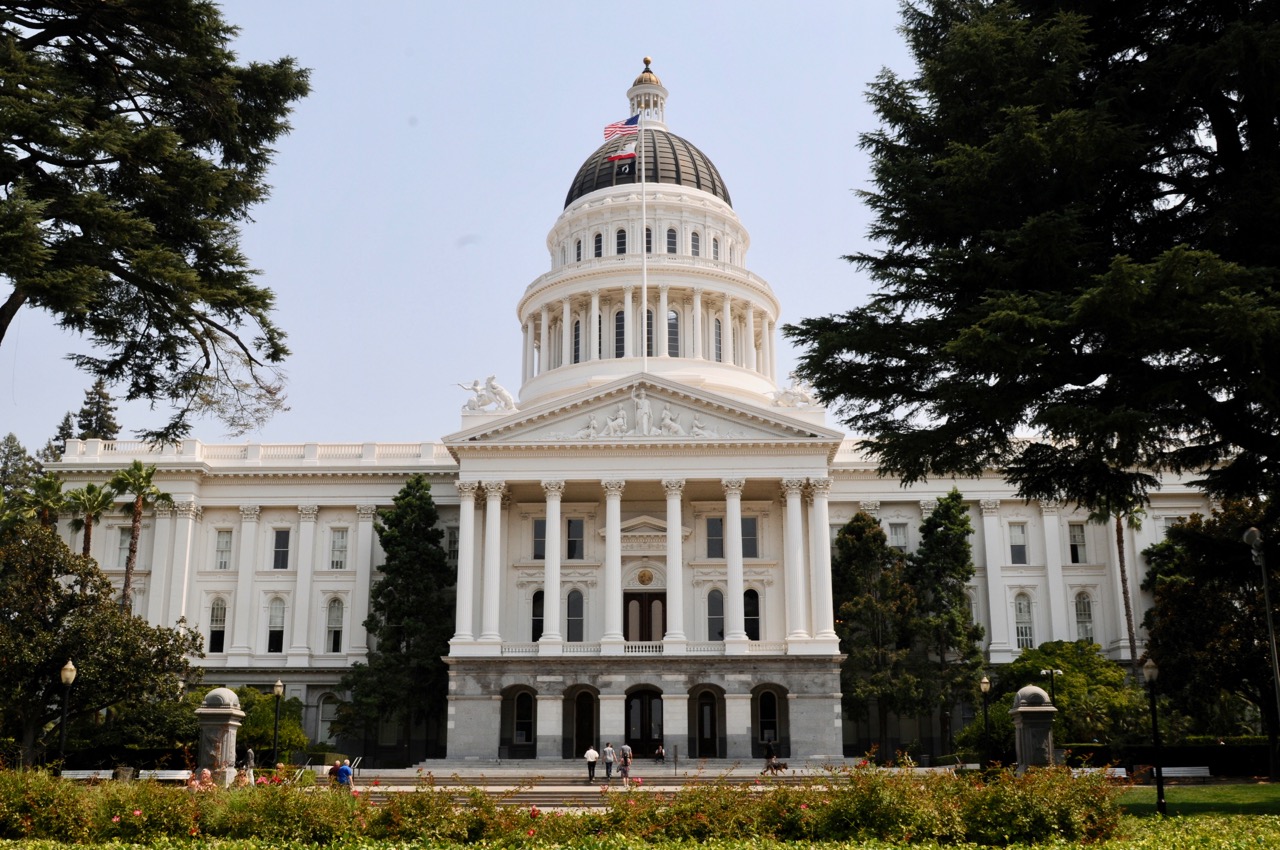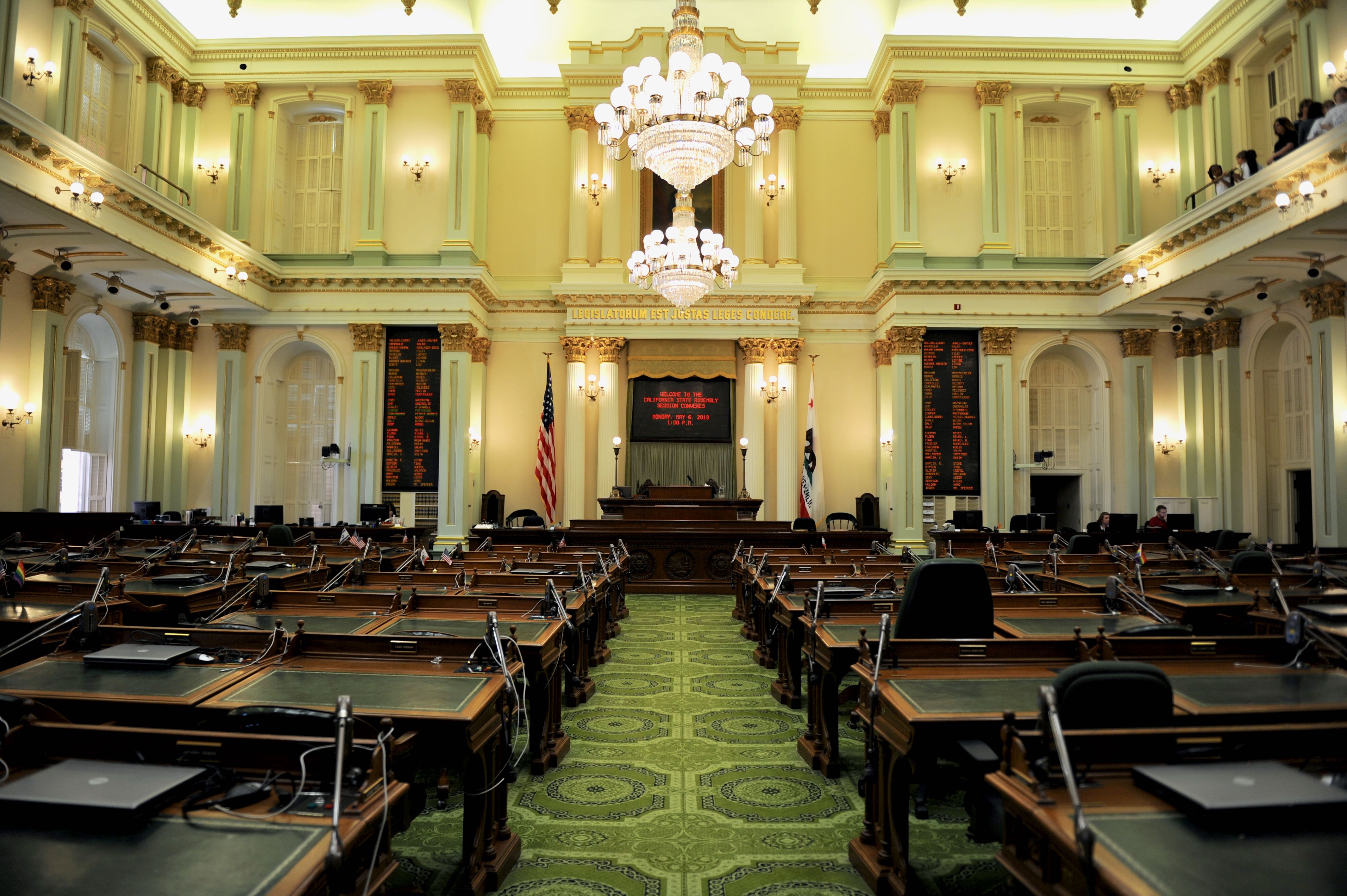
Journals of the California Legislature. (Photo: Wikipedia)
California’s Balanced Budget Requirement
The Legislature is prohibited from sending the Governor an unbalanced budget and the Governor is prohibited from signing an unbalanced budget
By Chris Micheli, June 12, 2020 7:09 am
Does California have to adopt a “balanced budget”? The short answer is yes. But there are several interesting aspects to this requirement.
Existing provisions of the California Constitution were interpreted to require a balanced budget. For example, Article IV, Section 12(a) requires the Governor to submit a budget by January 10 and, “if recommended expenditures exceed estimated revenues, the Governor shall recommend the sources from which the additional revenues should be provided.” This constitutional provision was deemed to at least require the Governor to submit a balanced budget.
In addition, Article XVI, Section 1 limits the Legislature’s ability to incur debt of more than $300,000 unless the Legislature passes by a 2/3 vote a measure that is adopted by the electorate. This constitutional provision was deemed to preclude the Legislature from adopting a budget that would create debt or liability in excess of $300,000 to the State.
And, since 1983, Government Code Section 13337.5 requires a balanced budget. This statute provides: “The annual Budget Act shall not provide for projected expenditures in excess of projected revenues. Further, it is the intention of the Legislature that in the event, after enactment of the Budget Act, revised estimates of expected revenues or expenditures, or both, show that expenditures will exceed estimated revenues, expenditures should be reduced or revenues increased, or both, to ensure that actual expenditures do not exceed actual revenues for that fiscal year.”
The issue was finally settled with an amendment to Article IV, Section 12, when subdivision (g) was added, which reads: “(g) For the 2004–05 fiscal year, or any subsequent fiscal year, the Legislature may not send to the Governor for consideration, nor may the Governor sign into law, a budget bill that would appropriate from the General Fund, for that fiscal year, a total amount that, when combined with all appropriations from the General Fund for that fiscal year made as of the date of the budget bill’s passage, and the amount of any General Fund moneys transferred to the Budget Stabilization Account for that fiscal year pursuant to Section 20 of Article XVI, exceeds General Fund revenues for that fiscal year estimated as of the date of the budget bill’s passage. That estimate of General Fund revenues shall be set forth in the budget bill passed by the Legislature.”
As such, the balanced budget requirement is a constitutional mandate that applies equally to both the legislative and executive branches of government. The Legislature is prohibited from sending the Governor an unbalanced budget and the Governor is prohibited from signing an unbalanced budget. Of course, this leads to other questions, such as: How is “balanced” determined and who gets to decide if the budget is “balanced”?
Per the California Constitution and an appellate court decision, the determination is made based upon what is contained in the budget bill. In other words, the budget bill contains both the listing of expenditures as well as the estimate of revenues for the forthcoming fiscal year. That means the determination is up to the legislative and executive branches of government.
And this was confirmed by the Third District Court of Appeal in its Steinberg v. Chiang decision issued in 2014. The previous State Controller, John Chiang, argued that, in his audit capacity, he could determine whether the budget was balanced and, for purposes of the 2011 state budget, he claimed it was not balanced at the time the Legislature sent the budget bill to the Governor. The appellate court unanimously disagreed.
The trial court and then the appellate court concluded that the Legislature complies with the constitutional provision for a balanced budget when it enacts a budget bill in which its revenue estimates for the coming fiscal year exceed the total of existing appropriations for the fiscal year, new appropriations proposed in the budget bill for the fiscal year, and any transfer to the reserve fund. At that point, the Controller does not have the authority to make an independent assessment that the budget bill is not in fact balanced because it relies on revenues not yet authorized in existing law or is in enrolled legislation.
The Legislature successfully sought and received a declaration by the court that the Legislature complies with the balanced budget provision of the state Constitution when it passes a budget bill in which appropriations (and monies transferred to the reserve account) do not exceed the legislative estimate of revenues. So, the Legislature sets forth its revenue estimate in the state budget bill and that estimate will essentially not be subject to review by a constitutional officer or a court. In fact, the appellate court specifically found that the Controller cannot second-guess revenue estimates.
The court stated, “All that the balanced budget provision prescribes for the budget bill is inclusion of a legislative estimate of revenues ‘made as of the date of the budget bill’s passage’ that exceeds the combination of the total amount of appropriations in the bill, the existing appropriations for the upcoming fiscal year, and transfers to the reserve fund.” The appellate court went on to explain that “the balanced budget provision does not prescribe the manner in which the Legislature must calculate this estimate, the nature of the revenue sources the Legislature may or may not take into account, or any role for the Controller in overseeing the estimate.”
In addition, the court ruled that the state’s Constitution does not require budget trailer bills to be enrolled and sent to the Governor for signature before the constitutional deadline of June 15. The court also expressly addressed the issue of estimates on the receipt of federal funds: “Indeed, the Controller overlooks the extent to which California balances its budget with federal funds, the authorization for which is entirely outside the control of the Legislature (and the predicted total of which bespeaks more legislative artistry than accounting skills).”
Hence, even though the Controller alleged that there may be “phantom revenues included in the budget bill’s estimate,” the appellate court ruled that “it would amount to ‘inappropriate judicial interference with the prerogatives of a coordinate branch of government’ to endorse his [the Controller’s] intrusion into the budget process under ‘the guise of interpretation’.” The court then addressed the obvious question how to enforce the balanced budget requirement.
Here the court ruled that “The Governor can enforce it either through vetoing the budget as a whole or exercising his power to veto line items to bring appropriations in balance with accurate revenues.” As such, it is essentially the Legislature that enacts what it designates as a balanced budget, with a check from the Governor through his or her use of the blue pencil. It also means that the Legislature can adopt a “balanced budget” based upon its determination that federal funds or new revenues are forthcoming, even though there is no guarantee of receipt of those funds.
- Conservation Banks - February 22, 2026
- Mergers of Unincorporated Associations - February 21, 2026
- A Historic Look at Bill Introductions in the California Legislature - February 21, 2026




